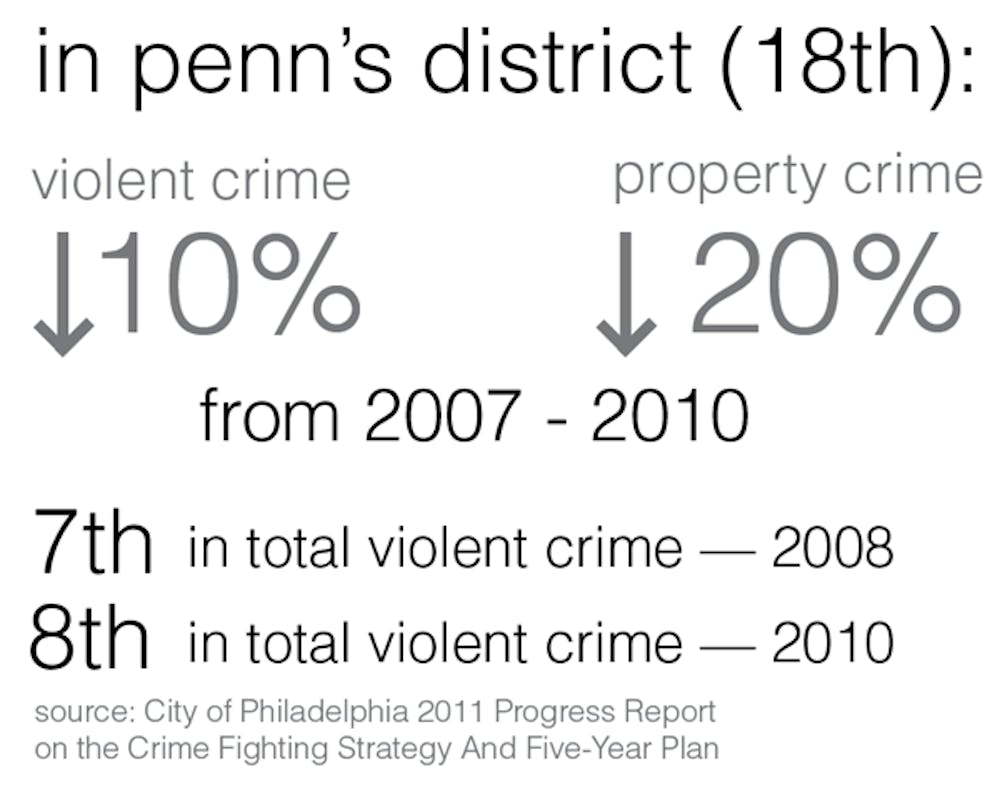
While Philadelphia was plagued by violent flash mobs this summer, its future may look much calmer.
Philadelphia Mayor and Wharton 1979 graduate Michael Nutter and Police Commissioner Charles Ramsey unveiled a five-year crime plan for the city of Philadelphia for 2011 through 2016, along with a review of current crime statistics at City Hall at the end of last month.
Among the plan’s goals is to introduce horseback police and task Penn’s School of Veterinary Medicine with care of the horses, Vice President for Public Safety Maureen Rush said.
It also focuses on encouraging involvement in community safety and continuing to decrease violent crime, which fell 8 percent from 2007 to 2010.
The major effect the new plan will have on the presence of Philadelphia Police in the Penn community is the increased focus on 64 Police Service Areas — subdivisions of the 21 police districts — in crime strategies. Seeking out “chronic hot spots [within PSAs] is the pillar of the neighborhood-based policing model that drives how the Department organizes and delivers police response and services,” the report reads.
The use of subdivisions is a technique already used by Penn Police, Vice President for Public Safety Maureen Rush said.
“We’ve been doing something like that for years — we call it the Sector Integrity Program,” Rush explained. “We have the campus broken into areas as well.”
These areas help ensure faster response time and better coverage in each zone, she added.
Community policing can be very effective as police officers and people become familiar with each other, according to Criminology professor Freda Adler.
“It’s a popular type of policing. [The police] get to know the kids on the block, they get to know the problems, they get to know the drug sales,” Adler said.
Additionally, the plan identified nine target districts in Philadelphia — including the 18th, which contains Penn’s campus — that account for the majority of violent crimes and 65 percent of homicides. Nutter and Ramsey committed to dedicating more resources to these areas.
Increased reliance on technology is also part of the plan. The Philadelphia Police introduced a program called SafeCam that allows individuals and businesses to voluntarily register their CCTV security cameras, making them a part of the Philadelphia Police’s Real Time Crime Center and using them when crimes occur in their vicinity, according to the report.
“We know how well [surveillance] works on the Penn campus; the Penn campus is completely covered,” Adler said. “We do have research that shows surveillance works, but it’s also expensive … you have to pay for it.”
Increased community involvement is a major goal of the program, but Rush noted that the district where Penn is located already hosts monthly meetings, attracting a group of diverse people who regularly attend.
“We have had the luxury of a smaller area, and absolutely we have major involvement not only within Penn but within the West Philly community,” she said. “We do presentations and it is a definite grass roots community meeting that allows people to exchange ideas and prevention tools.”
The Daily Pennsylvanian is an independent, student-run newspaper. Please consider making a donation to support the coverage that shapes the University. Your generosity ensures a future of strong journalism at Penn.
DonatePlease note All comments are eligible for publication in The Daily Pennsylvanian.








